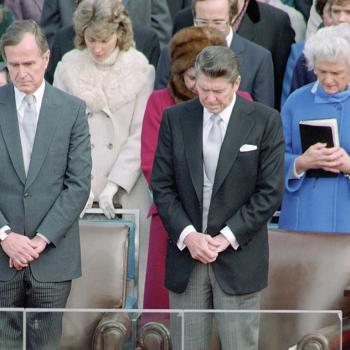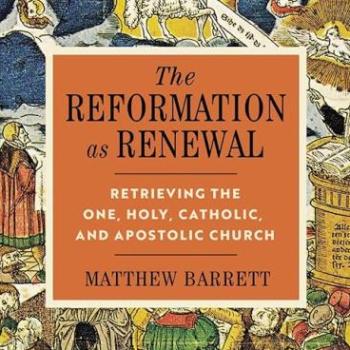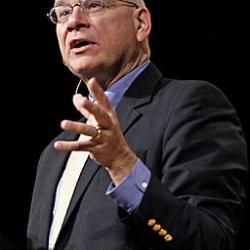Greetings friends! Writing here from beautiful and chilly St Andrews, Scotland, where we are spending the semester. I have just begun to write a new book on Ben Franklin and religion, and am discovering more and more what a thoroughly Calvinist background Franklin had. I have written before about his beloved Calvinist sister Jane. Today I will consider his father Josiah, a candle-maker and devoted member of Boston’s Old South Church.
We normally associate Puritan immigrants to New England with John Winthrop and his charter generation of the 1630s, but Josiah Franklin was one of the late arrivals, arriving after the English Civil War. In England, Josiah and his brother Benjamin (Ben’s namesake) fell in with the “nonconformists” who held illegal private meetings in the Franklins’ Northamptonshire. In the late 1670s a wave of intense persecution came against nonconformists across England, as many church and government officials regarded them as dangerous incendiaries who might once again threaten the stability of the nation, as they had during the Civil War. University of Oxford officials sanctioned the public burning of writings by non-Anglican luminaries such as John Milton. Even pacifist Quakers, who would soon found Franklin’s longtime home of Pennsylvania, were jailed under brutal conditions and died by the hundreds during the 1680s. Northamptonshire was a hotbed of nonconformity, and in one episode in the mid-1680s more than fifty members of landowning gentry were arrested on suspicion of seditious religious activity.

Changes during the 1680s made Boston a less exclusively Puritan town, even though non-conformists like Josiah Franklin still sought religious refuge there. Church life organized society, and the Franklins moved into a home across the street from the Old South Church, where the venerable Samuel Willard served as minister starting in 1678. Willard’s magnum opus was the thousand-page Compleat Body of Divinity, a series of two hundred fifty lectures on key points of doctrine. This compilation was arguably the most comprehensive theological treatise produced in colonial New England, drawing from the Westminster Shorter Catechism (1647), the most frequently-used guide to English and Scottish Reformed theology. When Willard’s book was posthumously published, Josiah was one of 450 subscribers who underwrote the great work. The candle-maker ordered two copies.
Willard would perform Josiah’s marriage to Abiah Folger in 1689, after the death of Franklin’s first wife Anne. Abiah became the mother of Ben Franklin. The Folger family had come to Massachusetts in 1635, among the first generation of Puritan settlers. Josiah and Abiah both joined the Old South Church, and Ben would later memorialize them on their tombstone as a “pious and prudent man” and a “discreet and virtuous woman.” Reminiscent of the old banned conventicles in Northamptonshire (though freely permitted in Boston), Josiah participated in home group prayer meetings with the judge and celebrated Boston diarist Samuel Sewall.
Josiah was also elected as a “tithingman,” a kind of Puritan policeman, tasked with counseling people and informing the authorities about “disorderly persons” including “stubborn and disorderly children and servants, night-walkers, tipplers, Sabbath breakers by night or by day, and such as absent themselves from the public worship of God on the Lord’s days,” or any practices “tending to debauchery, irreligion, profaneness, and atheism amongst us.” Although such mandates sound ominous to modern ears, Ben Franklin averred in his autobiography that in his duties Josiah won “a good deal of respect for his judgment and advice.” To the extent that there was a Puritan consensus in the Massachusetts of Ben’s youth, people assumed that virtue, religion, and morality were public concerns.
Ben Franklin would famously grow skeptical about his fathers’ faith, but in many ways that faith – and its emphasis on the need for public morality and charity – would continue to mark Franklin’s own endeavors as an adult.
[Friends, you can sign up here for my Thomas S. Kidd author newsletter. Each newsletter will update you on what’s happening in the world of American, a religious and political history, and current events. It will contain unique material available only to subscribers, and each will help you keep up with my blog posts, books, and other writings from around the web. Your e-mail information will never be shared. Thanks!]












